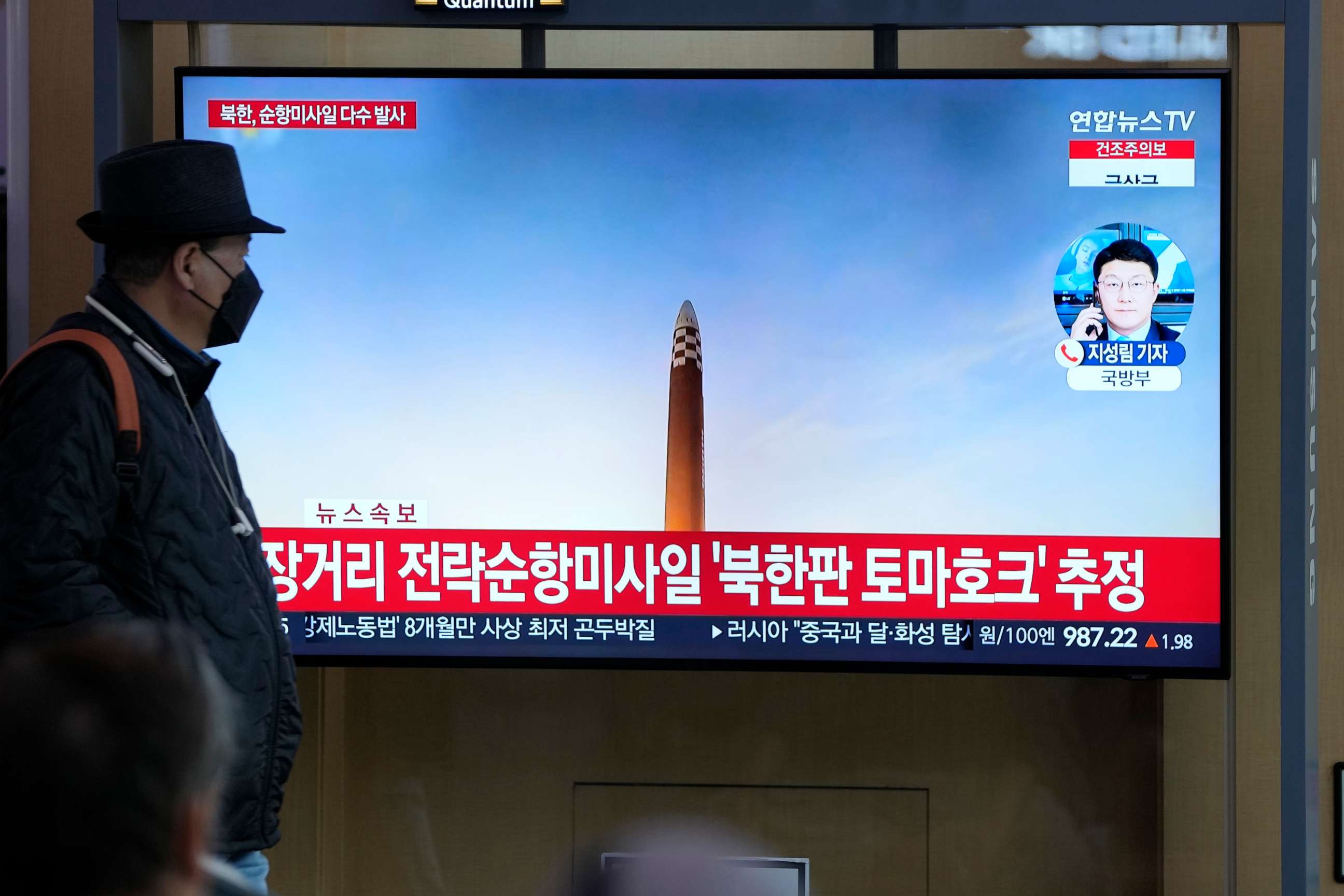North Korea fires multiple cruise missiles amid US-South Korea joint drills
SEOUL, South Korea -- North Korea fired multiple cruise missiles toward the East Sea Wednesday, the latest show of its military capabilities during the 11-days-long joint drills between the U.S. and South Korea.
The U.S.-South Korea joint military exercise is expected to wrap up Thursday morning local time.
“South Korea’s military detected several cruise missiles fired at 10:15 a.m. from South Hamgyong province towards the East Sea,” South Korea’s Joint Chiefs of Staff told ABC News. North Korea’s military provocation took place just as the Amphibious Assault Ship USS Makin Island arrived in South Korea to join the large-scale landing exercises for the joint drills.

Pyongyang relentlessly fired various types of missiles the last ten days, consistent with North Korean leader Kim Jong Un’s sister’s vow on March 7 to "take appropriate, quick and overwhelming actions" to the joint military exercise North Korea has always complained about.
Starting with two submarine-launched cruise missiles on March 12, North Korea gradually raised the level of provocation by launching two short range ballistic missiles last Tuesday, a suspected Intercontinental ballistic missile last Thursday, and a short-range ballistic missile on Sunday.

North Korea’s state media KCNA explicitly referred to Sunday’s launch as a "drill to send a stronger warning to the enemy who expanded their war drills for aggression." Their reporting included a picture of the North Korean leader Kim Jong Un overseeing the test with his daughter.
“We should look at how North Korean media keeps using the term ‘combat arrangement’ in recent reports about their missiles,” Park Wongon, professor of North Korean Studies at Ewha Womans University, told ABC News. “The regime wants to show off that their weapons are far past the experimental stage and ready for the actual battlefield.”
North Korea’s cruise missiles don’t violate the United Nations Security Council resolutions, and are considered not as threatening as the ballistic missiles, but cannot be overlooked in the region for they are not easy to detect and intercept when flying at a low altitude.




